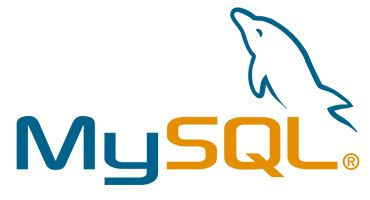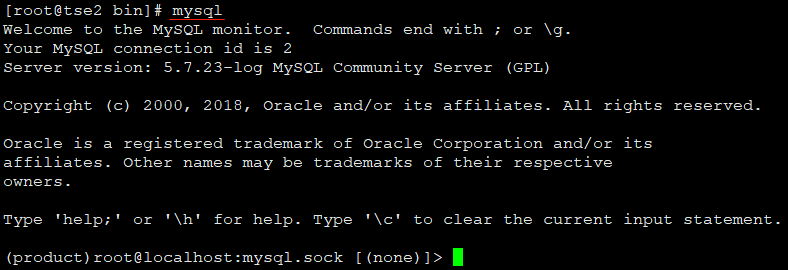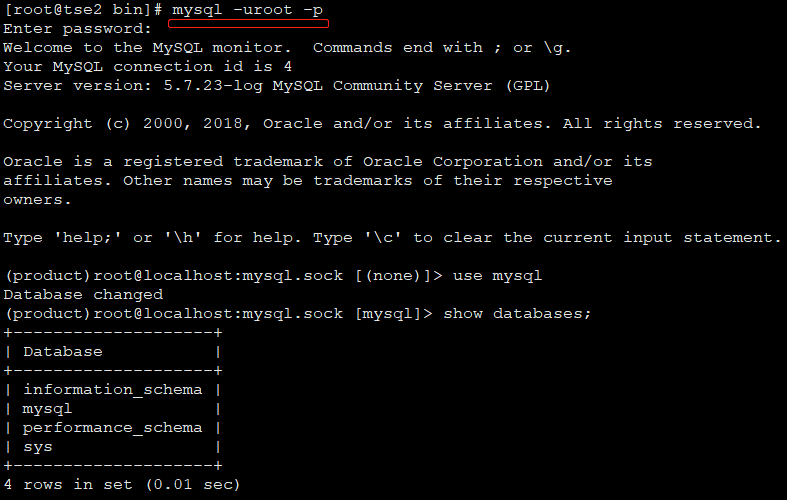對於DBA來說,丟失超管用戶root的密碼是致命的, 可以通過添加--ship-grant-tables參數來跳過許可權表。 1、忘記root密碼,進不去資料庫: 這個時候需要強制停庫,先查看MySQL進程號 Kill掉MySQL進程,命令如下: Kill完可以再查看是否還有進程 [root@tse2 ...

對於DBA來說,丟失超管用戶root的密碼是致命的,
可以通過添加--ship-grant-tables參數來跳過許可權表。
1、忘記root密碼,進不去資料庫:

這個時候需要強制停庫,先查看MySQL進程號

Kill掉MySQL進程,命令如下:
Kill完可以再查看是否還有進程
[root@tse2 tmp]# kill -9 9840 1 [root@tse2 tmp]# ps -ef |grep mysql

建議停庫這種操作不要影響業務的情況下,停服操作的,還有最好這種密碼記錄好的,可以用keepass保存密碼軟體!
然後加跳過許可權表參數,重啟資料庫。這樣即使不輸入密碼,也可以進入資料庫。
[root@tse2 bin]# mysqld_safe --defaults-file=/etc/my.cnf --skip-grant-tables & [1] 4854

直接輸入mysql不需要密碼即可進入

給root用戶設置新的密碼並刷新許可權,MySQL5.7之後,庫下的password欄位用authentication_string欄位代替。
(product)root@localhost:mysql.sock [(none)]> use mysql; Database changed (product)root@localhost:mysql.sock [mysql]> update user set authentication_string=password('123456') where user='root'; Query OK, 0 rows affected, 1 warning (0.00 sec) Rows matched: 1 Changed: 0 Warnings: 1 (product)root@localhost:mysql.sock [mysql]> flush privileges; Query OK, 0 rows affected (0.00 sec)
設置完成之後,重啟資料庫。註意重啟的時候不需要再加--skip-grant-tables參數了,正常啟動服務,輸入新的密碼可以正常進入資料庫了。這邊重啟以後測試直接mysql沒有密碼是無法進入的了。
[root@tse2 bin]# mysqld_safe --deaults-file=/etc/my.cnf & [2] 6720 [root@tse2 bin]# 2020-01-16T02:55:45.223195Z mysqld_safe Logging to '/mysql/mysql3306/logs/error.log'. 2020-01-16T02:55:45.262302Z mysqld_safe A mysqld process already exists [2]+ Exit 1 mysqld_safe --deaults-file=/etc/my.cnf [root@tse2 bin]# mysql ERROR 1045 (28000): Access denied for user 'root'@'localhost' (using password: NO)
這邊輸入密碼連接,即可正常進入,是修改後的密碼123456

[root@tse2 bin]# mysql -uroot -p Enter password: Welcome to the MySQL monitor. Commands end with ; or \g. Your MySQL connection id is 4 Server version: 5.7.23-log MySQL Community Server (GPL) Copyright (c) 2000, 2018, Oracle and/or its affiliates. All rights reserved. Oracle is a registered trademark of Oracle Corporation and/or its affiliates. Other names may be trademarks of their respective owners. Type 'help;' or '\h' for help. Type '\c' to clear the current input statement. (product)root@localhost:mysql.sock [(none)]> use mysql Database changed (product)root@localhost:mysql.sock [mysql]> show databases; +--------------------+ | Database | +--------------------+ | information_schema | | mysql | | performance_schema | | sys | +--------------------+ 4 rows in set (0.01 sec)



